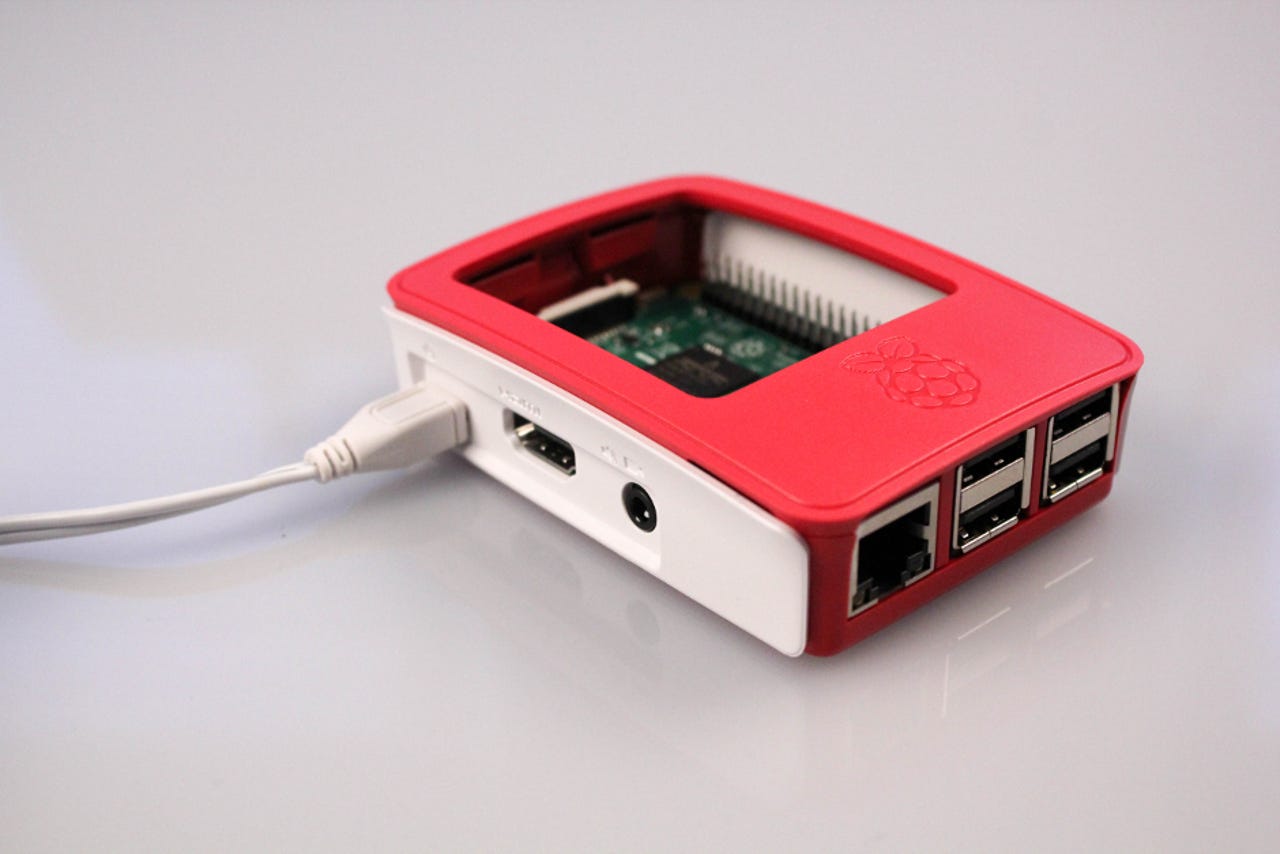Raspberry Pi and Docker: Tiny $35 computer gets major new release of HypriotOS


HypriotOS is available for the Raspberry Pi.
The Raspberry Pi computer may only cost $35, but it's also extremely versatile: suited to learning to code, building appliances, and even running Docker containers.
By automating the creation and deployment of apps in containers -- a lighter-weight form of virtualization -- Docker is designed to free developers from software and infrastructure dependencies, cutting costs and creating efficiencies in the process.
While containers are more commonly used on servers, this weekend saw the release of HypriotOS v1.0.0, an OS designed to orchestrate the deployment of containers on clusters of Raspberry Pi boards.
The stripped back Debian-based OS comes pre-installed with a number of Docker tools for Raspberry Pi versions 1, 2, and 3, as well as the Pi Zero and the compute module.
HypriotOS utilizes the pre-installed Docker Engine 1.12.1, and Docker's Swarm Mode helps spread containers between a multi-node Pi cluster, which could be helpful for developers looking to build a network of Internet of Things devices.
To get up and running, users will need to install the HypriotOS flash tool on an SD card, which is then inserted into a Raspberry Pi. Booting up takes less than five minutes, according to Hypriot.
HypriotOS developers have optimized the toolset to only require 600MB of disk space and have reduced the size of the download packages to 232MB.
They're also promising security out of the box by, for example, removing the 'root' user by default.
Also coming to the Raspberry Pi 3 at some point down the track will be Google's new operating system, Fuchsia, which is being built to support everything from smartphones to embedded systems. Google developers behind the project have eschewed Android's Linux kernel for the LittleKernel-based Magenta. Google plans for Fuchsia to eventually support the Raspberry Pi 2 too.
Microsoft also has its eye on Raspberry Pi, recently rolling out the Windows 10 IoT Core branch of its Anniversary Update for Windows 10. Windows 10 IoT Core is built to serve low-powered developer boards and the update is available for the Raspberry Pi 3, Raspberry Pi 2, the Qualcomm-designed Dragonboard 410c, the Minnowboard Max, and Intel's forthcoming Atom-based Joule board.
New features in the Anniversary Update for Windows IoT Core include easier remote access to supported boards using a desktop or phone. The update also contains numerous bug fixes, and improvements to speech recognition handling by the Raspberry Pi. Pi developers however may still find it wanting on video playback, which hasn't been optimized, while support for connected cameras is limited.